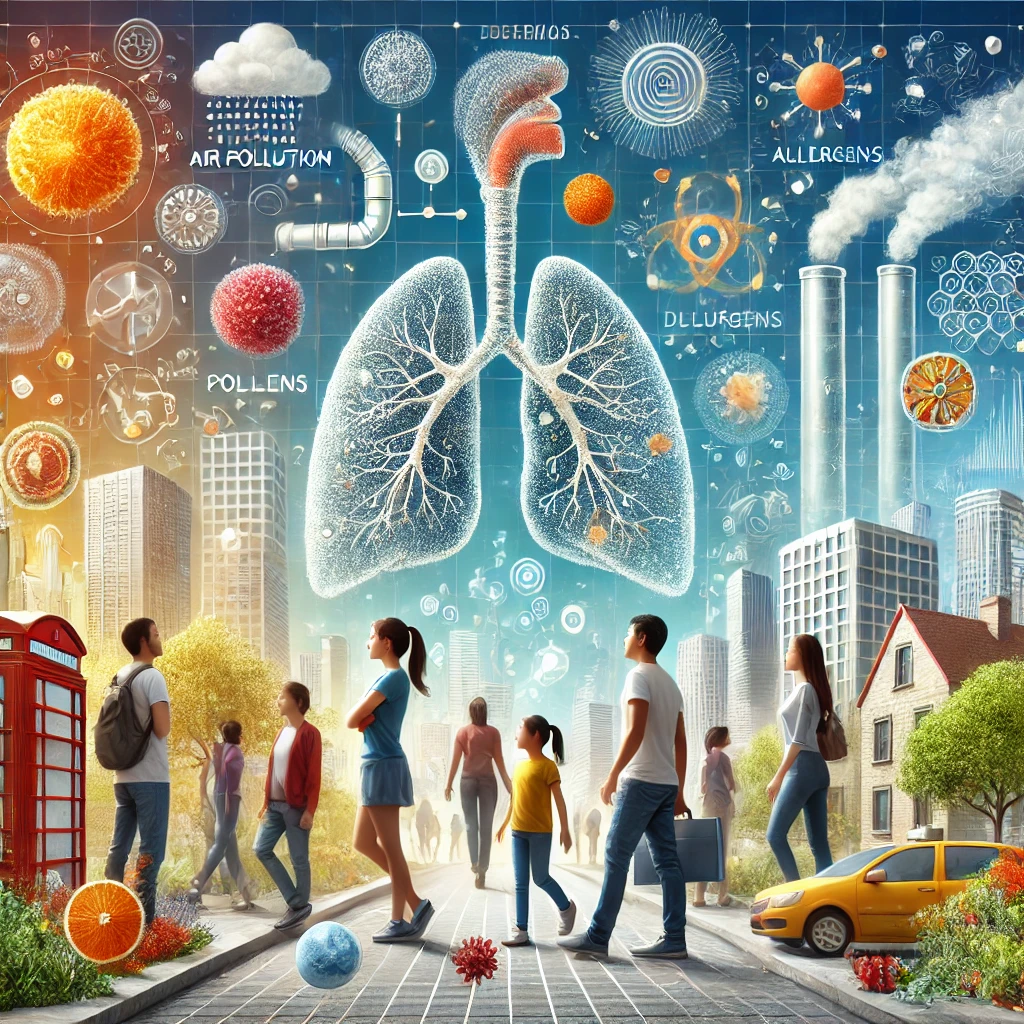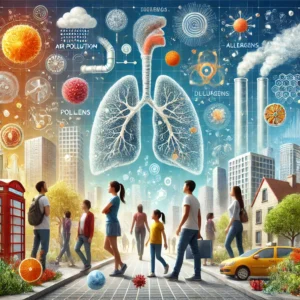Information

Breathless: Uncovering the Causes of Asthma in 1 in 10 People
Introduction
- Engaging Hook: Start with a powerful statistic (e.g., “Nearly 1 in 10 people worldwide live with asthma. Are you one of them?”).
- Purpose of the Post: Explain the goal of the article—to educate readers on asthma, its causes, and how to manage or prevent it.
- Why It Matters: Highlight the prevalence and growing impact of asthma on global health.

Breathless Uncovering the Causes of Asthma in 1 in 10 People
Section 1: What Is Asthma?
- Definition: Explain asthma as a chronic respiratory condition affecting the airways.
- How It Works: Simplify the science of airway inflammation, narrowing, and mucus production.
- Symptoms: List common symptoms (wheezing, shortness of breath, chest tightness, coughing).
- Global Prevalence: Share statistics and trends to highlight its reach.
Section 2: Understanding the Causes of Asthma
- Genetics:
- Role of family history and inherited traits.
- Studies linking genetic markers to asthma susceptibility.
- Environmental Triggers:
- Air pollution and its impact on respiratory health.
- Exposure to allergens (dust mites, pet dander, mold, pollen).
- Smoking and second-hand smoke.
- Occupational Factors:
- Industries and jobs associated with higher asthma risk (e.g., farming, cleaning).
- Role of chemical exposure.
- Lifestyle and Habits:
- Sedentary lifestyle and obesity.
- Role of diet and processed foods.
- Childhood Factors:
- Premature birth or low birth weight.
- Respiratory infections in early childhood.
- Psychological and Emotional Triggers:
- Stress and anxiety as exacerbating factors.
- Connection between mental health and asthma attacks.
Section 3: Types of Asthma
- Allergic Asthma: Triggered by allergens.
- Non-Allergic Asthma: Caused by irritants like smoke or cold air.
- Exercise-Induced Bronchoconstriction (EIB): Asthma triggered by physical activity.
- Occupational Asthma: Linked to workplace exposures.
- Childhood vs. Adult-Onset Asthma: Differences in triggers and prognosis.
- Severe Asthma: Characteristics and challenges in treatment.
Section 4: Common Triggers of Asthma Attacks
- Indoor Allergens: Dust, mold, pet hair.
- Outdoor Allergens: Pollen, pollution, seasonal changes.
- Weather Changes: Cold air, humidity, sudden temperature shifts.
- Physical Activity: Intense exercise without proper warm-up.
- Respiratory Infections: Flu, colds, sinus infections.
- Medications: Side effects of beta-blockers, aspirin, etc.
- Stress and Strong Emotions: The link between emotional triggers and asthma.
Section 5: Diagnosing Asthma
- When to See a Doctor: Key signs that warrant medical attention.
- Diagnostic Tools:
- Spirometry.
- Peak flow testing.
- Allergy testing.
- Chest X-rays or CT scans.
- Differential Diagnosis: Ruling out other respiratory conditions.
Section 6: Managing Asthma Effectively
- Medications:
- Quick-relief inhalers (bronchodilators).
- Long-term control medications (corticosteroids, leukotriene modifiers).
- Biologic therapies for severe asthma.
- Lifestyle Modifications:
- Avoiding triggers.
- Regular exercise and its benefits.
- Healthy diet for reducing inflammation.
- Monitoring and Prevention:
- Using a peak flow meter.
- Keeping an asthma diary.
- Regular doctor visits.
Section 7: Living with Asthma
- Asthma Action Plan:
- Importance of having a personalized plan.
- Steps to take during an asthma attack.
- Emotional Well-being:
- Managing anxiety related to asthma.
- Support groups and resources.
- Empowering Others: How to educate family, friends, and coworkers.
Section 8: Future of Asthma Research
- Emerging Therapies: Biologics, gene therapy, and personalized medicine.
- Advancements in Diagnostics: AI and machine learning in asthma management.
- Global Initiatives: Efforts to reduce asthma prevalence and improve air quality.
Conclusion
- Summary of Key Points: Recap the causes, types, triggers, and management strategies.
- Encouragement: Reassure readers that asthma can be managed with proper care.
- Call to Action: Encourage readers to share the blog, seek medical advice if needed, and spread awareness about asthma.
Zulkifal
0
Tags :
